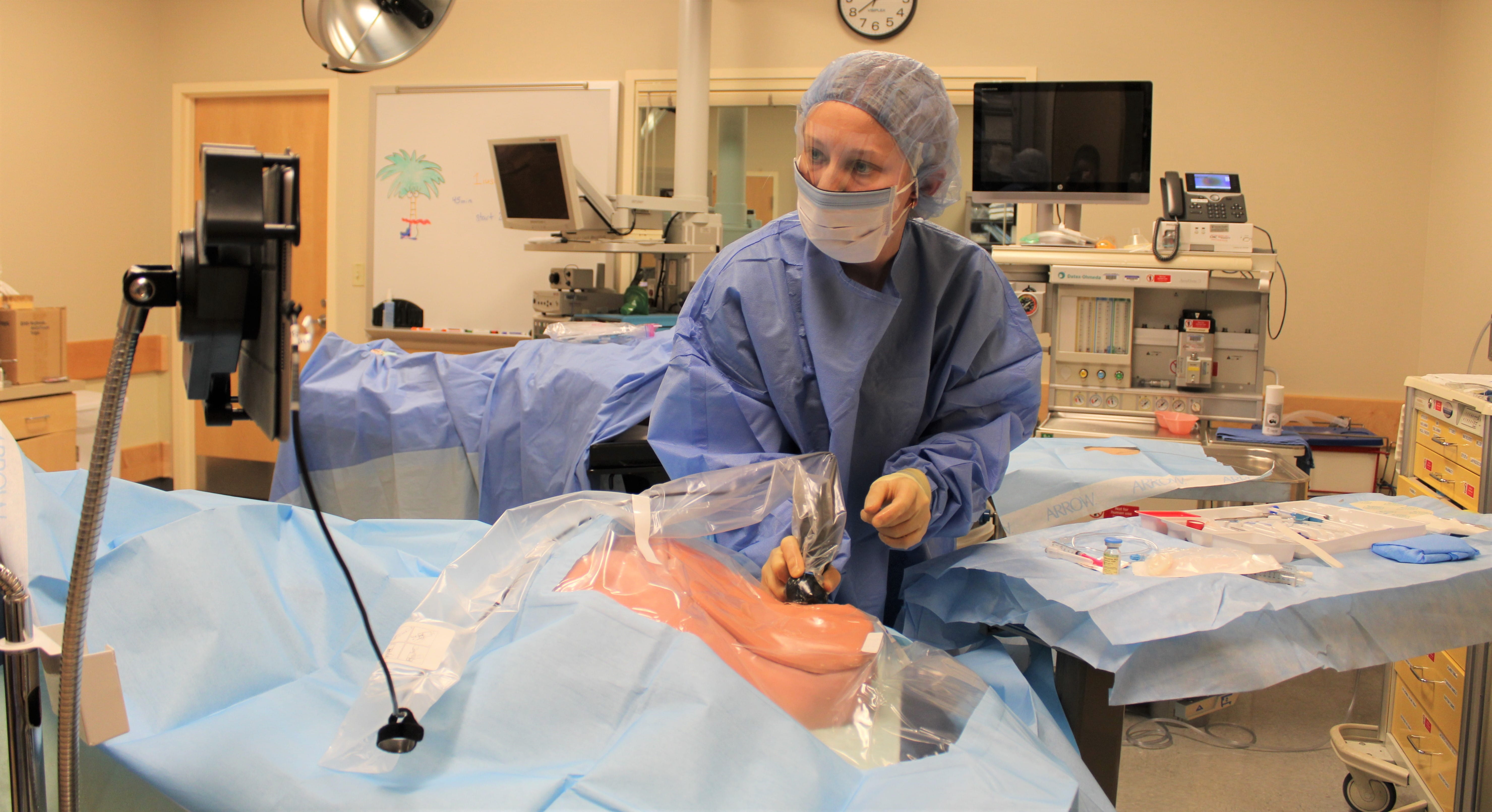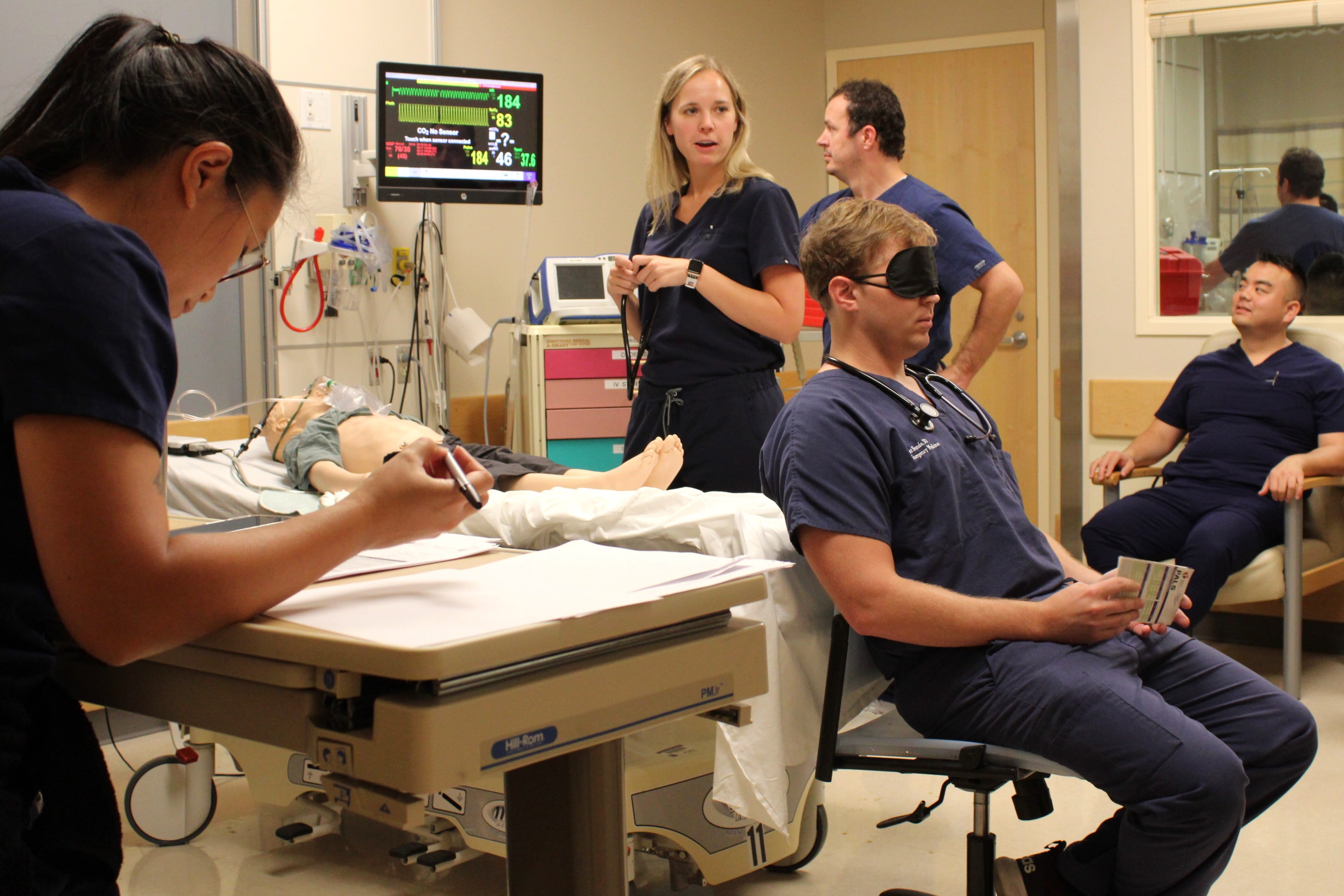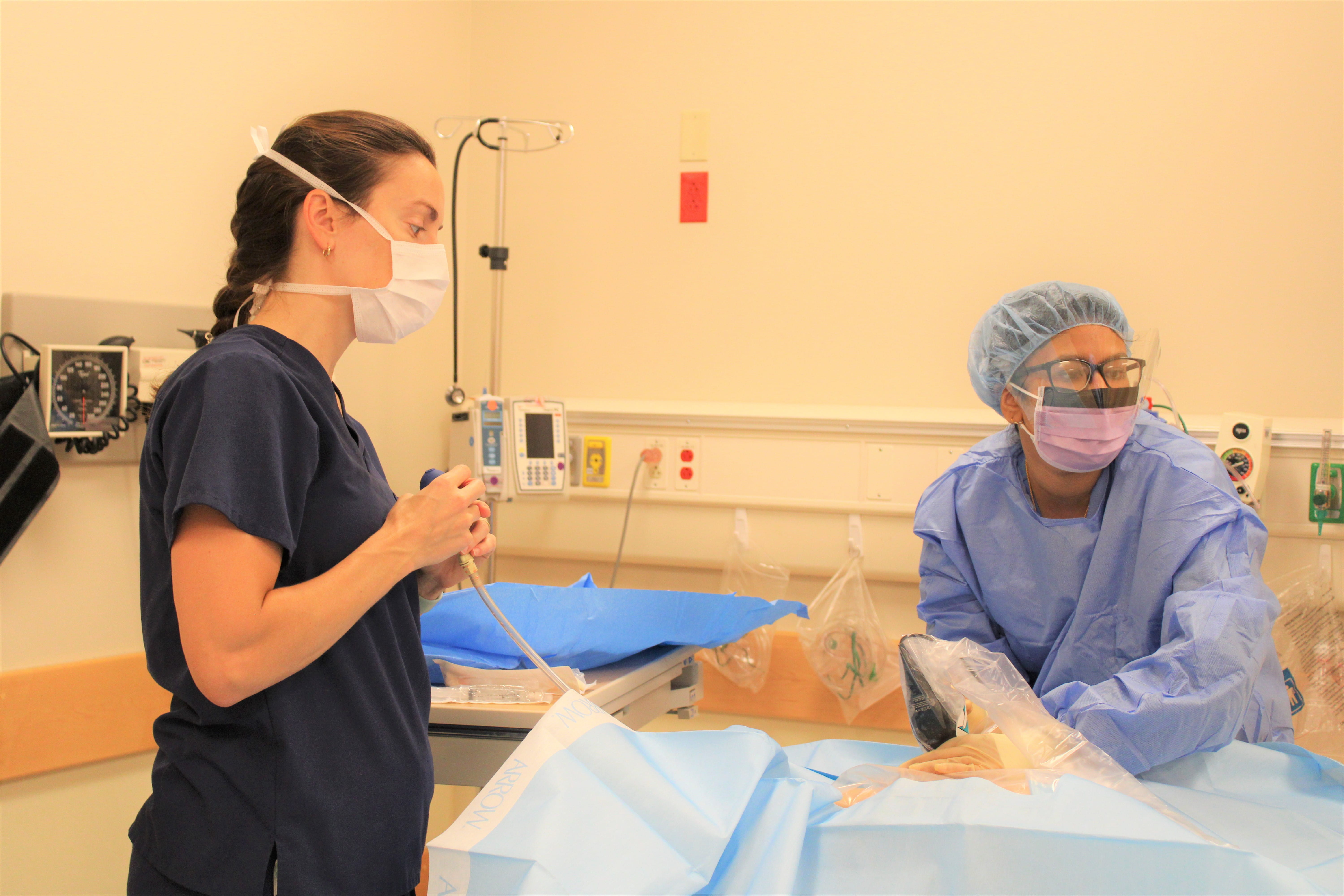The Division of Medical Simulation provides high-quality and effective simulation education to all levels of learners at Indiana University School of Medicine. All fourth-year medical students participate in a SPA day (Simulation-Procedures-Airway) while on their emergency medicine clerkship. Emergency medicine residents attend a multitude of simulation events throughout their residency training to include both technical and non-technical skills. The division also educates learners from other disciplines (surgery, pediatrics) and professions (nursing, pharmacy, respiratory therapy, paramedicine, chaplaincy) in efforts to improve teamwork and the delivery of patient care.
Technical Skills Training
Central line insertion, airway management, tube thoracostomy, massive GI bleed management, transvenous pacing, cricothyrotomy, paracentesis, pericardiocentesis, thoracentesis, compartment pressure monitoring, lateral canthotomy, thoracotomy, resuscitative hysterotomy, peritonsillar abscess drainage, fiberoptic intubation
Non-Technical Skills Training
Communication, breaking bad news, error notification, death notification, teamwork, leadership, multipatient care, consultation, microaggression management
Simulation Fellowship
The Medical Simulation Fellowship is a one-year fellowship offered to graduates of multiple residencies and is fully accredited by the Society for Simulation in Healthcare and the Society for Academic Emergency Medicine.
Simulation Elective
A medical simulation elective is offered by the Division of Medical Simulation for those students or residents who want to expand their simulation skills.


